Rabbi Heschel Quotes & Sayings
Enjoy reading and share 5 famous quotes about Rabbi Heschel with everyone.
Top Rabbi Heschel Quotes
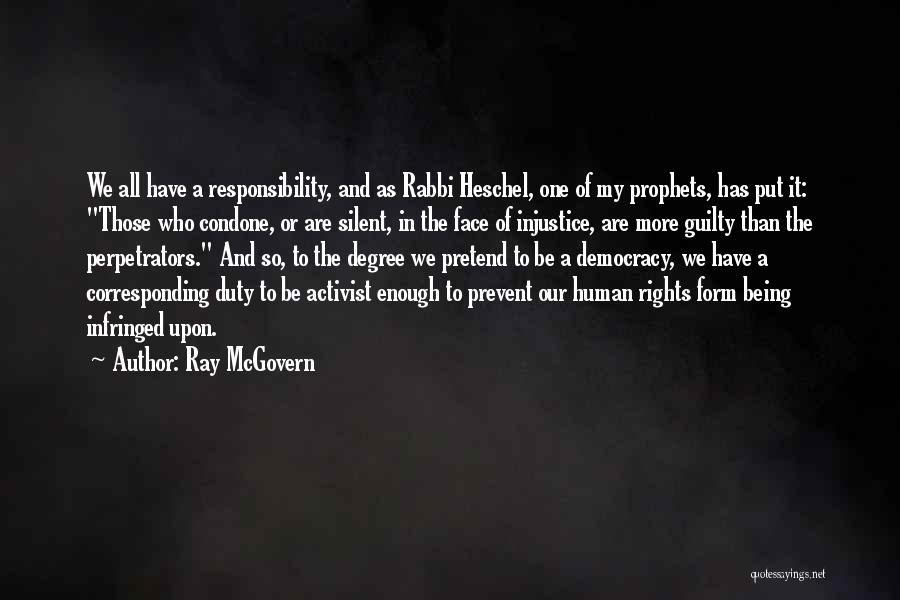
We all have a responsibility, and as Rabbi Heschel, one of my prophets, has put it: "Those who condone, or are silent, in the face of injustice, are more guilty than the perpetrators." And so, to the degree we pretend to be a democracy, we have a corresponding duty to be activist enough to prevent our human rights form being infringed upon. — Ray McGovern
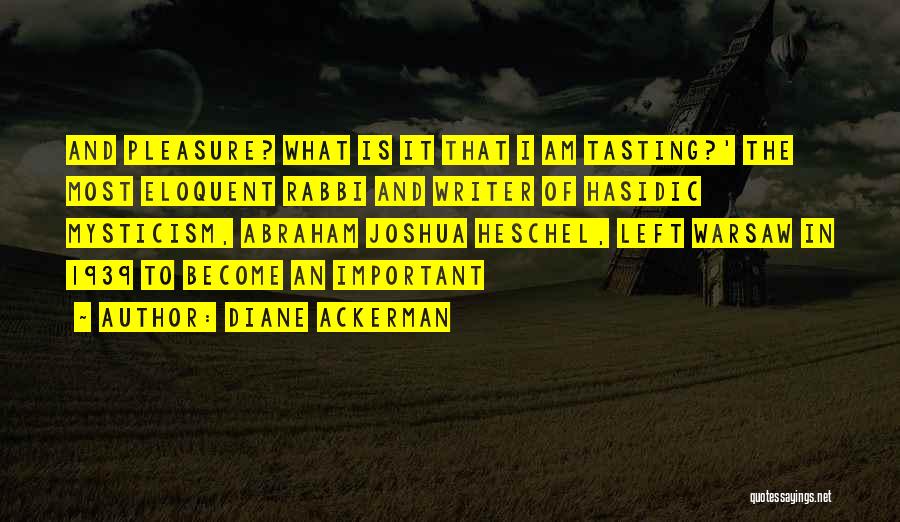
and pleasure? What is it that I am tasting?' The most eloquent rabbi and writer of Hasidic mysticism, Abraham Joshua Heschel, left Warsaw in 1939 to become an important — Diane Ackerman
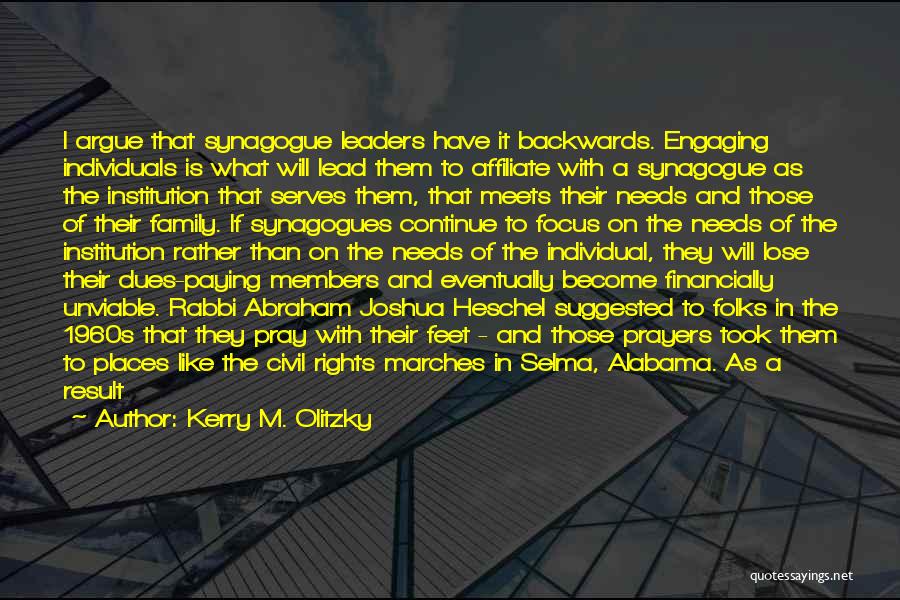
I argue that synagogue leaders have it backwards. Engaging individuals is what will lead them to affiliate with a synagogue as the institution that serves them, that meets their needs and those of their family. If synagogues continue to focus on the needs of the institution rather than on the needs of the individual, they will lose their dues-paying members and eventually become financially unviable. Rabbi Abraham Joshua Heschel suggested to folks in the 1960s that they pray with their feet - and those prayers took them to places like the civil rights marches in Selma, Alabama. As a result of the actions of Rabbi Heschel and the influence of American political culture, American Jews - like most Americans - have been taught to vote with — Kerry M. Olitzky
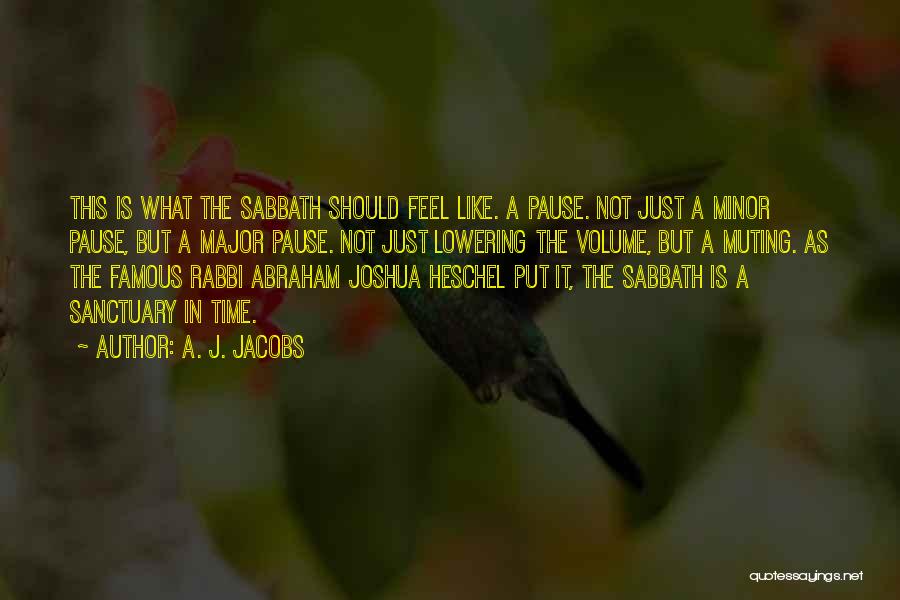
This is what the Sabbath should feel like. A pause. Not just a minor pause, but a major pause. Not just lowering the volume, but a muting. As the famous rabbi Abraham Joshua Heschel put it, the Sabbath is a sanctuary in time. — A. J. Jacobs
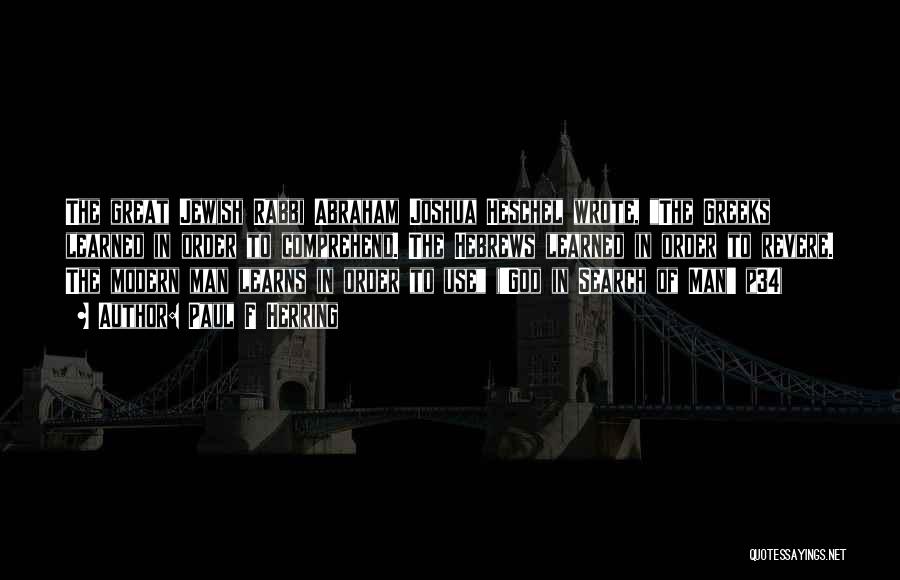
The great Jewish Rabbi Abraham Joshua Heschel wrote, "The Greeks learned in order to comprehend. The Hebrews learned in order to revere. The modern man learns in order to use" ('God in Search of Man' p34) — Paul F Herring





